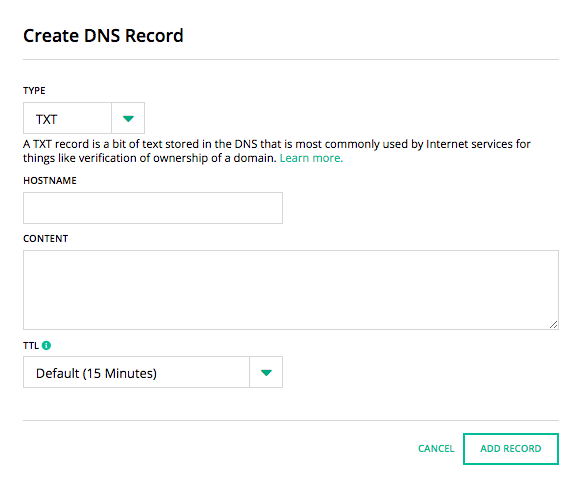
Web servers are the servers that host websites and web apps on the Internet. There are several different types available. Choosing which one is best for your needs depends upon factors like deployment, operating system and use case. You have a number of options to choose from.
Local Servers
If you own a smaller business or require a server to host your small website, a local webserver may be the best choice. These servers serve a particular purpose and are convenient and more secure than other hosting options.
Open Source Web Servers
Each has its own pros and cons. However, there are some that stand out above the rest. Apache, Nginx Lighttpd and Caddy are some of the most popular.

Apache is the web server of choice for more than half of all websites. It's open source, free for download and installation, and has a modular design that makes it easy for web developers to add features and adjust their site configuration.
Nginx
Nginx Web Server is lightweight and high-performance. It is also fast and reliable. It's used by many businesses to serve dynamic and static content. It also supports a number of protocols, SSL/TLS, basic HTTP authentication, virtual hosting, and URL rewriting.
Lighttpd
Lighttpd is a UNIX-based web server that aims to deliver low resource usage, high speed and a compact footprint. This allows it to run on systems without enough memory or storage space, and still consume less CPU power.
LiteSpeed
LiteSpeed web servers are another option to consider. They were designed for environments that have low memory like embedded devices or home computers. This server was developed in response to the resource demands of other mainstream servers. It is one of your fastest options when it comes to resource usage.

Cherokee
This webserver was developed by an individual as a solution to a personal problem. Even though it doesn't have the most cutting-edge technologies like Nginx or Lighttpd does, it's still a viable option for people who are looking to host websites in an easy and simple to manage environment. It is easy to manage and has a friendly interface.
Caddy
Caddy, unlike most web servers does not require additional software or scripts in order to work. This is a big advantage for those who aren't familiar with obtuse configurations of the Apache and Nginx server stacks.
The underlying architecture of this server is similar to Nginx, but it uses asynchronous request handling and works in a single thread, which can be useful on systems that don't have many CPU cores. It's not nearly as scalable Nginx or Lighttpd but can keep up with several hundred requests every second.
FAQ
Where can I locate freelance web developers
Freelance web designers and developers are available in many locations. These are some of the best choices:
Freelance Websites
These sites offer job postings for freelance professionals. Some have very specific requirements, while others don't care what type of work you do.
For example, Elance offers high-quality jobs for graphic designers, writers, programmers, translators, editors, project managers, and many other positions.
oDesk also offers similar features, but focuses more on software development. They have jobs available in PHP, Perl JavaScript, Ruby and.NET developers.
Another good option is oWOW. Their website focuses on web and graphic designers. They offer many services, including video editing, programming, SEO, and social media marketing.
Forums online
Many forums allow members of the community to post jobs or advertise their services. DeviantArt is an example of a forum that's dedicated to web developers. If you search "web developer" in the search bar, you will see a list of threads where people are looking for someone to help them with their websites.
Do I have to use a template?
Yes! Yes! Many people use pre-built frameworks or templates when creating websites. These templates include all of the code required to display the information on your webpage.
The following are some of our most-recommended templates:
WordPress - The most popular CMS
Joomla - another popular open source CMS
Drupal – An enterprise-level solution used by large organizations
Expression Engine - a proprietary CMS from Yahoo
Hundreds of templates are available for each platform, so finding the right one should be easy.
Can I create my own website with HTML & CSS?
Yes! If you've followed the steps, you should now be able create your website.
Now that you are familiar with how to create a website's structure, you will also need to be familiar with HTML and CSS programming.
HTML stands as HyperText Markup Language. It is similar to writing a recipe. It would include ingredients, instructions, as well as directions. HTML also tells a computer what parts of text should be bolded, underlined or italicized. It is the language of documents.
CSS stands for Cascading Style sheets. It is like a stylesheet that you use to create recipes. Instead of listing each ingredient and instructing, you can write down general guidelines for font sizes, colors and spacing.
HTML tells your browser how to create a web page. CSS tells you how.
Don't be afraid to ask questions if you don’t understand any of these terms. Follow these tutorials to create beautiful websites.
Statistics
- The average website user will read about 20% of the text on any given page, so it's crucial to entice them with an appropriate vibe. (websitebuilderexpert.com)
- Is your web design optimized for mobile? Over 50% of internet users browse websites using a mobile device. (wix.com)
- It's estimated that in 2022, over 2.14 billion people will purchase goods and services online. (wix.com)
- It's estimated that chatbots could reduce this by 30%. Gone are the days when chatbots were mere gimmicks – now, they're becoming ever more essential to customer-facing services. (websitebuilderexpert.com)
- At this point, it's important to note that just because a web trend is current, it doesn't mean it's necessarily right for you.48% of people cite design as the most important factor of a website, (websitebuilderexpert.com)
External Links
How To
What is website hosting?
Website hosting refers to where people go when they visit a website. There are 2 types.
-
The cheapest option is shared hosting. Your website files reside in a server managed by another company. When customers visit your site, their requests travel over the Internet to that server. The server owner then forwards the request to you.
-
Dedicated hosting: This is the most costly option. Your website resides entirely on one server. There are no other websites sharing space on the server. Your traffic remains private.
Because it is less expensive than dedicated hosting, shared hosting is preferred by many businesses. You can use shared hosting if the company owns the server to provide the resources required for your website.
Each option has its pros and cons. These are the key differences between them.
Shared Hosting Pros
-
Lower Cost
-
Simple to Setup
-
Frequent Updates
-
It can be found on many web hosting companies
Hosting shared with others can cost as low as $10/month. But keep in mind that this price usually includes bandwidth. Bandwidth refers the data that you can transfer over the Internet. Even if you upload only photos to your blog you might still have to pay more for large amounts of data that you transfer through your account.
You will quickly see why you paid so much for your former host once you have started. Many shared hosts offer very little customer support. Their techs will occasionally walk you through setting up your site, but you're on your own after that.
You'll want to look into a provider that offers 24-hour phone support. They will attend to any issues you have while you sleep.
Cons of dedicated hosting
-
More Expensive
-
Fewer Common
-
Requires Special Skills
With dedicated hosting, everything you need for your website is at your fingertips. You won't have worry about whether your website is using enough bandwidth, or whether it has enough RAM (random-access memory).
This means you will need to spend more upfront. However, once you start running your business online, you'll find that you won't need much technical assistance. You'll soon be an expert at managing servers.
Which is better for my business?
The answer to this question depends on which type of website you wish to create. Shared hosting is best for those who only need to sell products. It's simple to set it up and keep it updated. It's easy to set up and maintain, as you share a server with other sites. You will likely be updated frequently.
However, dedicated hosting can be a great option if you're looking to build a community around the brand. It allows you to focus on building your brand and not worrying about managing your traffic.
Bluehost.com offers both. They offer unlimited monthly data transfers and 24/7 support. You can also register domain names for free.